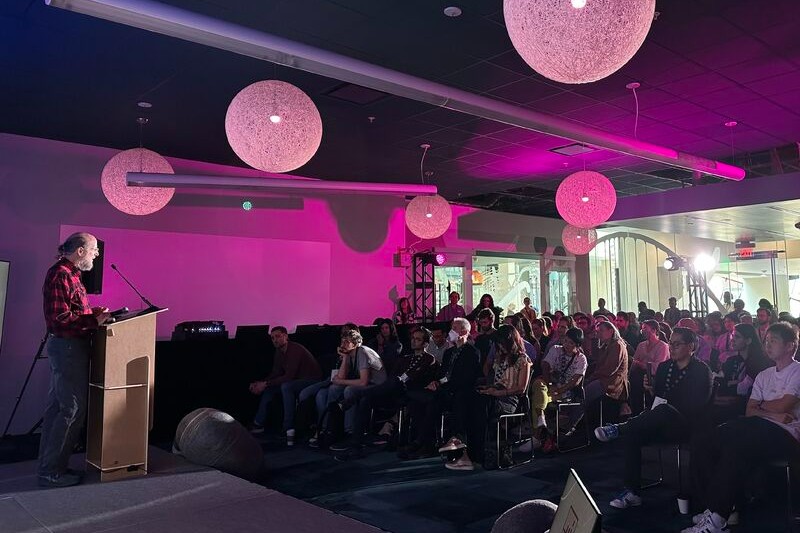As part of his continuing quest to achieve human-like artificial intelligence through reinforcement learning, Richard Sutton plans to develop OpenMind Research, a non-profit group dedicated to implementing the Alberta Plan for AI Research.
"It's such a longstanding goal of mankind to understand how we think and improve ourselves… so far as to create new beings that are as intelligent and powerful as we are now," Sutton explained during the final keynote speech of the Upper Bound AI conference, organized by the Alberta Machine Intelligence Institute (Amii) from May 23 to 26.
OpenMind would build on the work done at the recently closed DeepMind Alberta office, which Sutton co-founded with Michael Bowling and Patrick Pilarski in 2017.
Sutton, a Canada CIFAR AI chair and chief scientific advisor at Amii, seeks to create what he called Agent AI, which differs from the Tool AI that has recently gained prominence through Large Language Models like ChatGPT and the open-source 3D protein imaging database AlphaFold.
"They're not powerful by themselves, they're powerful when used by a person," Sutton said of Tool AI.
Agent AI is able to learn, adapt, and overcome challenges based on experience, not unlike teaching a human. In Sutton's conception, Agent AI is created of humanity, like a child, rather than against it.
"We include the possibility that (Agent AI) might teach us something fundamental," Sutton said. "Just as we expect our children, as they grow up, might teach us something fundamental."
While the concept of an autonomous artificial intelligence might be daunting, Sutton suggested fears it could cause the extinction of humanity are unfounded.
"It won't be a utopia, good things and bad things will still happen, but mostly good things," Sutton said. "AI won't change that. It might change which good things happen and which bad things happen."

Rich Sutton outlined his vision for developing artificial general intelligence in a keynote address at Upper Bound on May 26. (Amii/LinkedIn)
A common fearful narrative is that Tool AI will evolve on its own to become Agent AI, something Sutton says is impossible.
"Tool AI is not Agent AI, and can't become it," Sutton explained. "It doesn't happen by chance, it takes a lot of work."
Sutton and his former colleagues at DeepMind, Joseph Modayil and Melanie Marvin, have pledged to use OpenMind Research to implement the Alberta Plan, a document published in March 2023.
"As computational intelligence comes to be understood it will undoubtedly profoundly affect our economy, our society, and our individual lives," the document says before laying out a long-term plan to achieve that basic understanding. "Although all the consequences are difficult to foresee, and every powerful technology contains the potential for abuse, we are convinced that the existence of more far-sighted and complex intelligence will overall be good for the world."
Sutton said OpenMind will be a network of researchers funded by donors, with research being openly available and transparent rather than treated as intellectual property. OpenMind is seeking donors from Alberta and beyond to realize the "prize" of achieving Agent AI.
Earlier in the week, Upper Bound heard about a kind of Agent AI in the form of Gran Turismo Sophy. As Peter Stone of the University of Texas at Austin described it during his keynote, GTSophy has learned to navigate virtual racetracks in the video game Gran Turismo with both skill and panache thanks to applied reinforcement learning.
GTSophy is the most recent of a long line of reinforcement learning successes, a process that began with chess and Tetris and has evolved to include robot soccer. Agent AI like GTSophy is groundbreaking for its ability to surpass human players based on its reward system.
